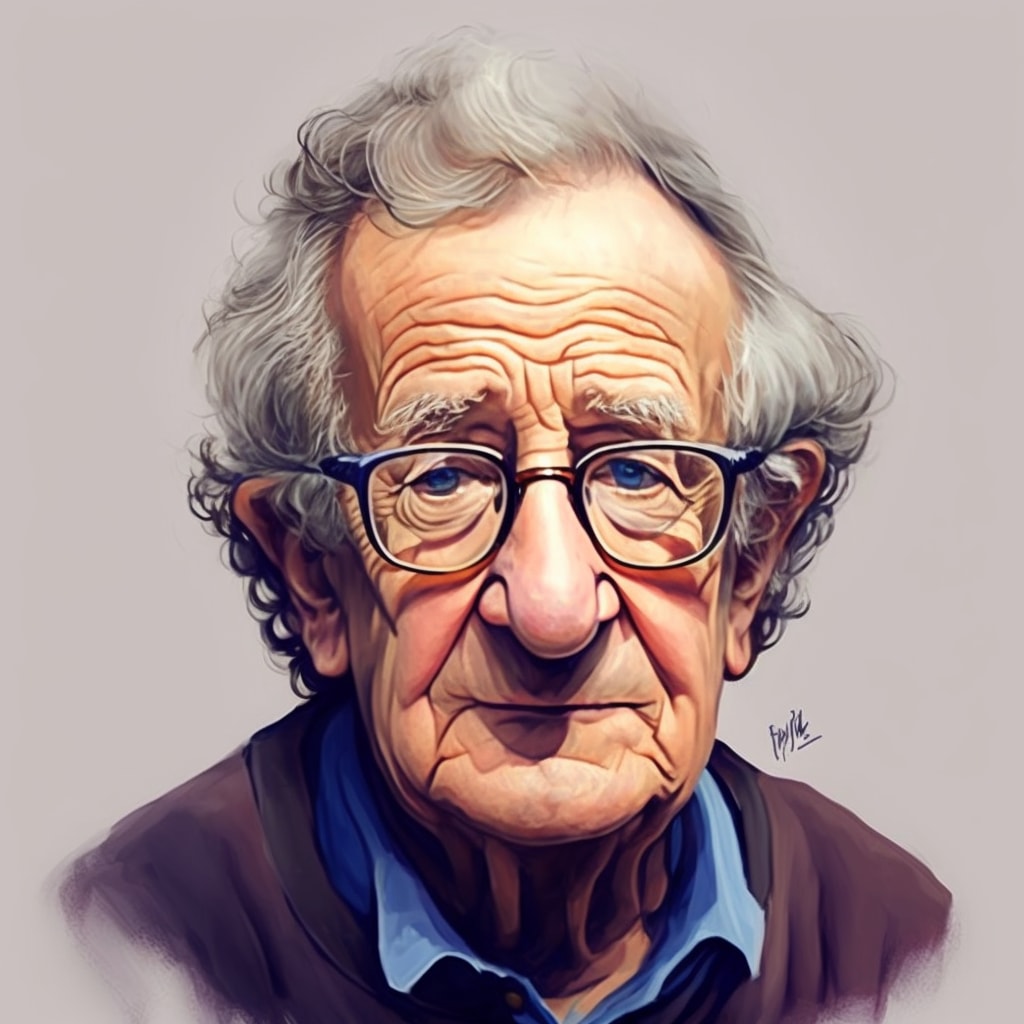The Great AI Debate of 2022: Takeaways
Recently, AI expert & critical thinker Gary Marcus convened the “AI Debate 3: Towards AGI”, a virtual 4 hour meeting that was held amongst 16 of the world’s leading experts on AI and aligned fields. Perhaps most poignant amongst them was the views of living legend Noam Chomsky on AI. The man, at a strapping 96 years old, is still amazingly cogent, coherent and present.
So excerpting liberally from that recording, I present to you: Chomsky on AI.
This post is what I deem to be the key quotes and ideas of the conference. You can watch the entire conference, recorded on video, here, or read a long pseudo-transcript of it by Tiernan Ray, here.
We will lead it off with Chomsky, who cut right to the chase, asking:
Chomsky on AI: Really… “What’s the point?”
“Many flaws have been detected in large language models, and perhaps they’ll get a little better with size… with more data, more parameters.
However, there’s a very simple and fundamental flaw that will never be remedied [if we continue to blindly pursue our current development vector of neural nets, large language models, and scaling, scaling, scaling]. By virtue of their very design,
…these systems make no distinction between possible and impossible languages.“
The more the systems are improved,
the deeper the failure becomes…
They are telling us nothing about
language and thought,
about cognition generally,
or about what it is to be human.
We understand this very well in other domains.
No one would pay attention to a theory of elementary particles that didn’t at least distinguish between possible and impossible ones …Is there anything of value in, say, GPT-3 or fancier systems like it? It’s pretty hard to find any…
One can reasonably ask,
‘What’s the point?’
Can there be a different kind of AI…
…the kind that was the goal of pioneers of the discipline, like Turing, Newell & Simon, and Minsky… thinkers who regarded AI as part of the emerging cognitive science, a kind of AI that would contribute to our fundamental understanding of thought, language, cognition and other domains, that would help answer the kinds of questions that have been prominent through millennia, with full respect to the original Delphic oracle:
“What kind of creatures are we?”
[continuing on, from the conclusion to Chomsky’s presentation]
“What motivates me is the Delphic Oracle:
“Know thyself.”
There is virtually no genetic difference between each and every human being on Earth, since the dawn of civilisation. Our DNA has not changed. Language has not changed. These two things have been essentially static since the emergence of humans, as evinced by any child in any culture being able to acquire language. So, this begs the question:
“What kind of creatures are we?”
— Noam Chomsky,
famed Linguist & Activist
speaking at the 2022 Great AI Debate
I would add to Chomsky on AI,
riffing especially off his final question:
“Why are we building this technology?”
“What is the ultimate goal of our efforts?”
“Towards what grand purpose do we toil?”
Evidence would suggest that the end goal was implanted long ago, that it is innate and latent within each of us individually and our species collectively… Evidence would suggest that the mysterious final destination of all this work has its own agenda. Evidence would further suggest that this thing is, across the eons of time, slowly doing its work through us. We are its hands, we are its agents, we are the servants of this greater agenda, and yet we cannot possibly see towards what ends we toil… we can only guess, postulate, and imagine.
Chomsky on AI : the 2023 update
On March 8, Chomsky penned a now famous op-ed to the New York Times. His key criticism of today’s AI is probably best summarized in the central paragraph:
“Indeed, such programs are stuck in a prehuman or nonhuman phase of cognitive evolution.
Their deepest flaw is the absence of the most critical capacity of any intelligence: to say not only what is the case, what was the case and what will be the case — that’s description and prediction — but also what is not the case and what could and could not be the case. Those are the ingredients of explanation, the mark of true intelligence.”
Not words to be taken lightly.
That said, I beg to differ. The fact is, alien intelligence may take forms that are very foreign to human minds. So while it may not exhibit the mark of true human intelligence, ChatGPT and BingAI are absolutely intelligent — even given their proclivities for both hallucination, significant calculation errors, and yes, threats to its users. There is no biological being on earth that can hold conversations of such depth, such decent accuracy (95%+), and across such a wide array of topics — and languages — as today’s LLM AI models.
